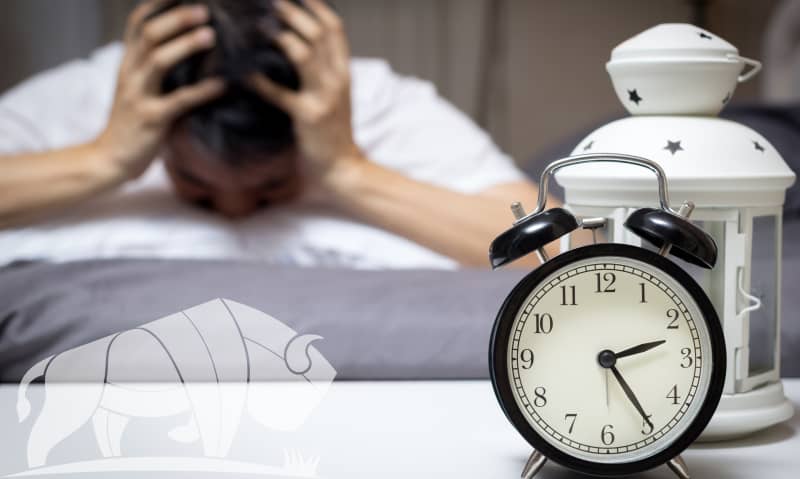7 Hidden Signs That You Didn’t Know Were Actually Signs of Sleep Apnea

Subtle Symptoms of Obstructive Sleep Apnea
More than 26% of adults over 30 have undiagnosed sleep apnea, and other studies suggest that as many as 20% of all adults experience mild symptoms of obstructive sleep apnea (OSA).
Despite OSA being so common, the average person is only somewhat familiar with sleep apnea and its effects on the body. For example, they may know it’s a condition that makes a person stop breathing while they’re asleep or that chronic, loud snoring is one of the most common symptoms.
Obstructive sleep apnea actually has many different symptoms, including some that you might be experiencing right now without even realizing it.
What is obstructive sleep apnea?
Before diving into the more subtle signs of obstructive sleep apnea, here’s a quick refresher on what OSA is, why it happens, and what it can do to your mental and physical health.
Obstructive sleep apnea is one of three forms of sleep apnea, a category of sleep-disordered breathing. It occurs when a physical blockage prevents you from breathing normally while asleep. The blockage is often caused by soft tissues in the throat and mouth collapsing inward when inhaling, either restricting or completely stopping you from breathing in.
Untreated OSA can be detrimental to your overall health because it physically prevents you from getting adequate sleep on a nightly basis. Not only can it negatively impact your daily life by causing problems at work or in personal relationships, but it also increases your risks of developing several chronic health conditions.
Heart disease, certain cancers, diabetes, and disease of major organs are just a few examples of serious problems that OSA can cause or contribute to.
Aside from snoring, what are signs of sleep apnea?
Loud snoring on a nightly basis is strongly associated with OSA, but it isn’t the only symptom, nor is it necessarily a sign you have sleep apnea.
When you speak with a doctor or medical sleep specialist about your suspected OSA, they will ask you in-depth questions about the symptoms you’ve been experiencing aside from snoring to form a diagnosis.
Here are some of the less common signs of sleep apnea that you might be overlooking.
1. You wake up with a dry mouth or scratchy throat.
Open-mouth breathing at night often happens with OSA, whether the person also snores or not. Breathing through the mouth frequently leads to waking up with a dry mouth and sore or scratchy throat.
2. Morning headaches occur frequently during the week.
People with OSA and other forms of sleep apnea often experience headaches in the morning. They usually develop after waking up, and may dissipate by the afternoon.
3. You feel fatigued despite getting enough hours of sleep.
You know when you fall asleep and when you wake up, but if you still feel tired and groggy during the day, it could point to sleep apnea. The reason this occurs is that despite clocking in 8-plus hours of sleep, you aren’t actually achieving deep sleep during this time.
4. Bruxism is wearing down your enamel.
Bruxism is the act of grinding your teeth and clenching your jaw. It can be a response to stress, but doctors have also found it to be a sleep apnea symptom. If you notice the edges of your teeth look worn down, your dentist can take a look and rule out possible dental issues before seeing a doctor for sleep apnea diagnosis.
5. Waking up frequently during the night isn’t unusual.
Waking up throughout the night isn’t considered normal, and it’s often a sign that some sort of sleep apnea is occurring. Consider starting a simple sleep journal: Jot down what days you wake up during the night and any other related symptoms.
6. You feel short of breath when you wake up.
This symptom often accompanies suddenly waking up during the night. Some people may even feel themselves gasping or choking as they wake up.
7. Sensations of sleep paralysis occur on a regular basis.
Sleep paralysis isn’t always caused by sleep apnea, but the similar sensation of feeling stuck between falling asleep and waking up is a lesser-known symptom. Although more common in children or teens, adults may also experience this sensation coupled with night terrors.
How can I get relief from my obstructive sleep apnea?
It can be alarming to find out that you have obstructive sleep apnea, but the good news is that it’s a very manageable form of sleep apnea, and most cases respond well to treatment.
After receiving a formal diagnosis from a doctor, you can begin discussing treatment options, which might include:
- Using positive airway pressure therapy (CPAP or BiPA machine)
- Wearing an oral appliance at night, such as a mandibular advancement device, to prevent your jaw from sliding backward
- Making lifestyle adjustments to reduce symptoms, such as maintaining a healthy body weight or quitting habits like smoking or excessive alcohol consumption
In rare cases, oral surgery may be necessary to remove excessive soft tissues or chronically enlarged tonsils interfering with proper breathing.
Your dentist can help you manage your sleep apnea symptoms.
Your dentist can’t diagnose you with sleep apnea, but they can fit you with a custom oral appliance and offer support in managing your OSA symptoms. These appliances are particularly helpful for sleep apnea patients who cannot tolerate a CPAP machine. Our team provides sleep apnea treatment in Buffalo, Minnesota, and can help you find a local doctor to diagnose your symptoms if you need assistance. Schedule an evaluation today by calling our office or requesting a visit online.
